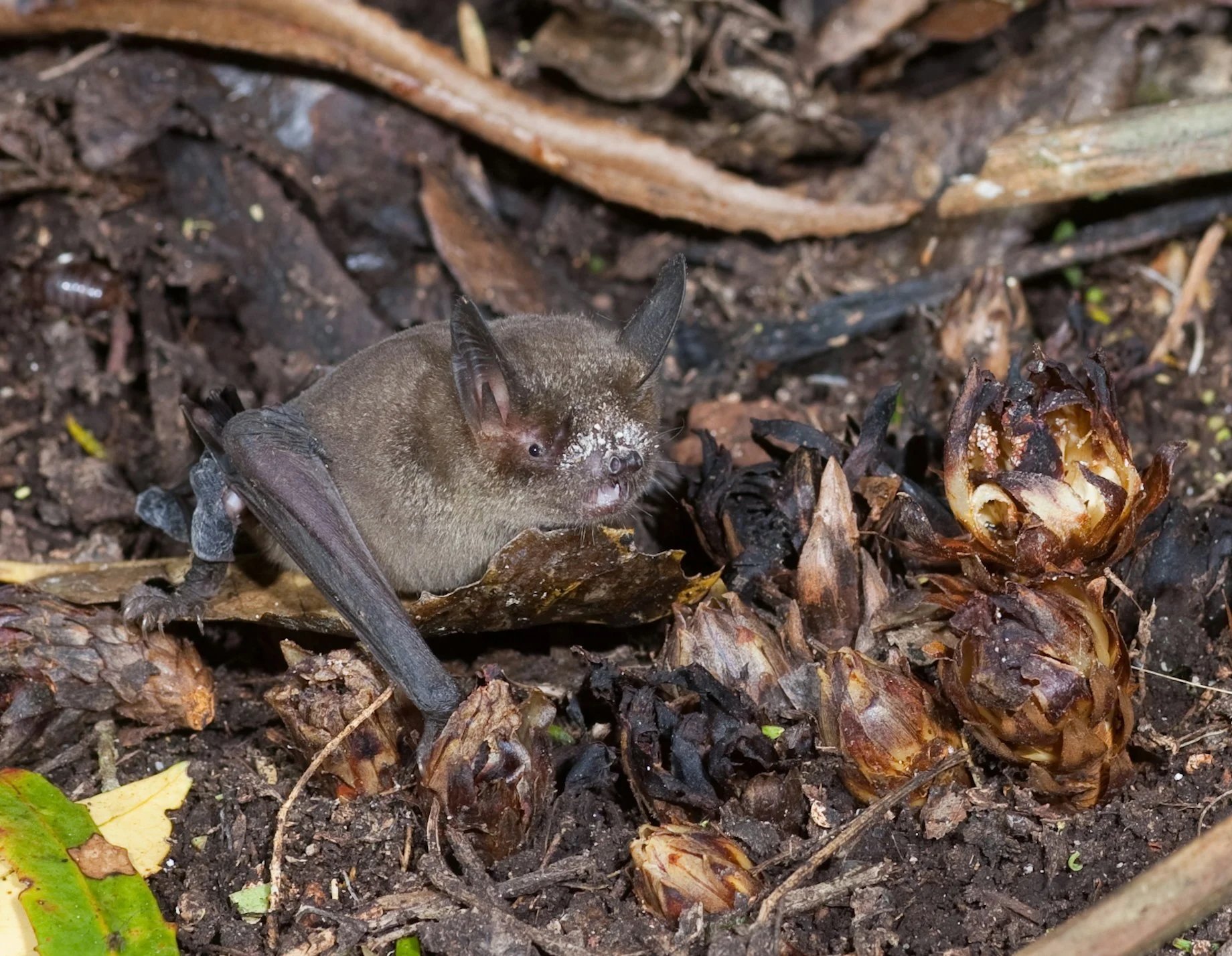Waiorua Pekapeka Monitoring
“Pekapeka-tou-roa (long-tailed bats) have been present on Kapiti Island throughout its history. Numbers now appear to be low, with no apparent recovery since rat eradication, although little information is available.
Monitoring of the population to determine long-term trends and population trajectory is needed to ensure the distributional range of the species is maintained”.
Kapiti Island Ecological Restoration Strategy, Kerry Brown et al (2016)
By continuing our long-term monitoring of pekapeka-tou-roa activity in Waiorua Valley we’ll determine whether the local population is increasing as expected.
If no clear increase is observed, further investigation may be needed to identify and address barriers to the species success on Kapiti.
Since 2015 we’ve been using AR4 remote acoustic recorders to monitor for pekapeka-tou-roa activity in Waiorua Valley.
The AR4s detect ultrasonic noises in the high range we expect from pekapeka, and saves a spectrogram (image showing a sound wave over time). These images can then be analysed to determine whether the sound was a bat or some other environmental sounds.
So far we’ve analysed over 30,000 spectrograms from Waiorua Valley, with over 600 confirmed pekapeka-tou-roa records!
An example spectrogram from Waiorua shows pekapeka-tou-roa echolocations.
Our efforts so far have concentrated on pekapeka-tou-roa rather than pekapeka-tou-poto (short-tailed bats) due to the increased effort required to find the forest-dwelling tou-poto, and the lower likelihood of their ongoing survival on the motu.
With more recorders, including handheld “Bat Box” detectors, we could attempt pekapeka-tou-poto surveys. The detection of their ongoing presence on the motu would be very significant. We aspire to seeing their return, and without a currently known method to succesfully translocate pekapeka it’s worth having a look!
Each AR recorder costs us $675 to purchase (at the reduced rate for non-profits). With more recorders, we can monitor more sites.
Keen for a kōrero?
We’re always keen to connect on kaupapa taiao, and all sorts of other odd things. If you think we should be speaking to each other, kōrero mai!



